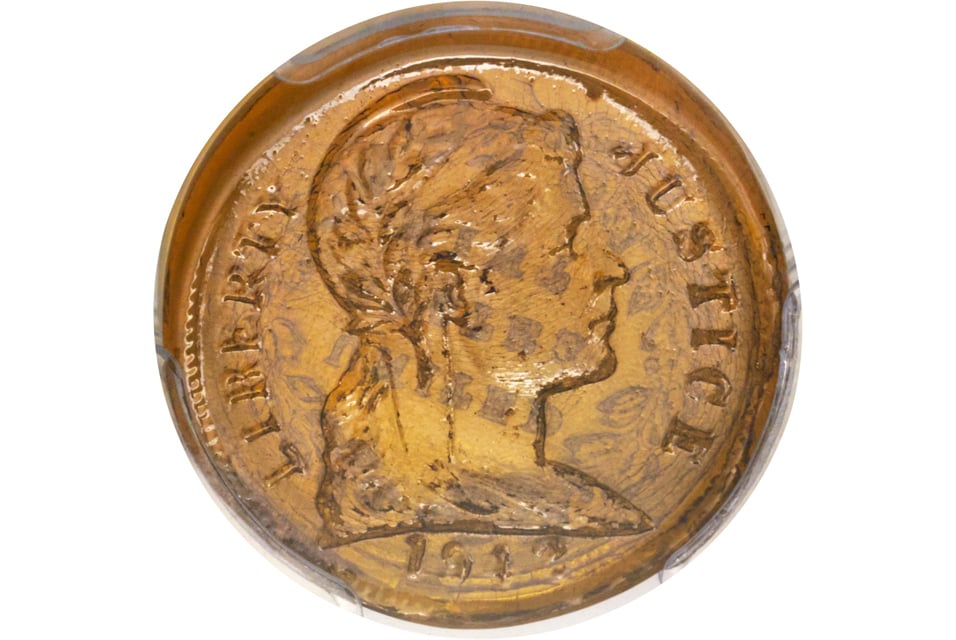
How much would you pay for a single penny?
One coin enthusiast just shelled out $70,500 at Heritage Auctions for a experimental glass penny produced in 1942. The pre-auction estimate was $30,000.
During World War II, the US government sought a viable alternative to copper: plastic, rubber, and glass were all considered.
Ultimately, zinc-coated steel was selected and new pennies were put into circulation by the US Mint in 1943—but not before the Blue Ridge Glass Company of Kingsport, Tennessee, produced test pennies using tempered, yellow-amber transparent glass from the Corning Glass Company.
1942 Experimental Glass Cent, PR64. Courtesy of Heritage Auctions.
According to Heritage, Roger W. Burdette, author of the book United States Pattern and Experimental Pieces of World War II and the previous owner of the auctioned coin, believes it is the only intact glass penny in existence—a second known example is broken in half. (Perhaps evidence that glass pennies were not the most practical idea, after all.)
“We know that before doing any of the work, Blue Ridge Glass had some of the employees carry some of the blanks in their pockets for a few days as a test, but the blanks chipped and created sharp edges,” Burdette said in a statement. “I think it would have been tough for the public to accept them as money.”
At the Fort Lauderdale auction, timed to the Florida United Numismatists convention, an anonymous phone bidder snapped up the prized penny.
“Although glass failed as a substitute for US coinage,” said Mark Borckardt, senior numismatist and cataloger at Heritage Auctions, in a statement, “this piece represents a unique artifact of the ingenuity and determination of US Mint officials and private industry.”